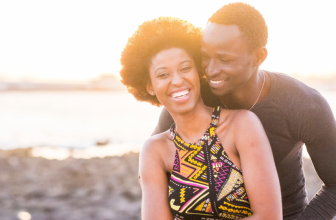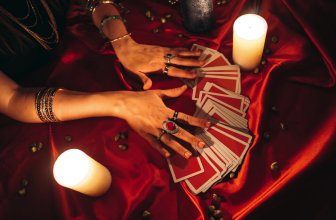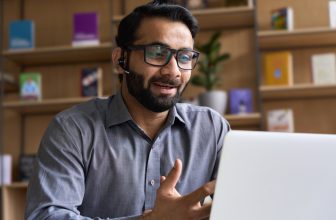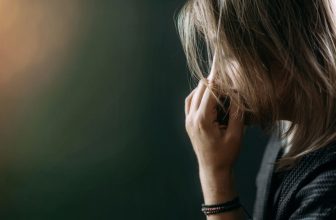
Unconditional love is something that isn’t always easy, but we often see it. A mother most likely will love her children unconditionally without ever changing this. In a relationship, this can change because it normally starts with some kind of attraction and then we learn to accept others. But then there comes the flaws and the red flags and so unconditional love becomes harder.
In order to have unconditional love, you have to have the spiritual element involved in it. You can achieve unconditional love, but you have to set a goal in this. It is important that you have unconditional love for yourself.
Here is how to make that happen:
- Connect with Your Inner Being
You have to learn to connect with who you are. This doesn’t mean that you just take care of yourself, but it means that you learn who you are. You have to reflect on your life, take time to be quiet and then learn who you are inwardly.
- Face Your Challenges
Everyone has flaws and everyone has some kind of weakness. You have to learn to accept things instead of judging yourself. You might be insecure, or you might be judgement, but you can fix these things. If you have things inside that are hard to face, they need to be released and healed.
Healing your inside starts by releasing things that you feel ashamed about. Do energy work and get your mind and your body aligned.
- Healing Old Hurts
Most people have old things that have hurt them. These things can be something that come up often in your life, even when you don’t want it to. When this happens, it can bring back hurt and open up wounds. These are normally dark places that people don’t want to go to.
These things can cause there to be fear and to be anxiety, but you have to work through these things and find healing in your life so that you can move on.
- Forgive Yourself
Forgiveness is hard but you have to find it. Even if you have done something to yourself or if you have stayed in relationships that were unhealthy for you, you have to forgive yourself and others. Forgiveness is something that can help you to realize that you are living your best life and that you have made mistakes.
Not everyone is aware of the pain that they have caused others or themselves and when you are more aware of your hurt and what caused it, you can start to heal and move on.
- Accept Where You Are
The next thing is to accept where you are right now. Maybe you aren’t where you want to be right now, but you can get there. Get rid of your past hurts and your wounds and learn to live in the moment. Know that you are someone new each day and embrace the new you.
- Find Loving Relationships
Loving yourself unconditionally doesn’t mean that you should be lonely. Find people in your life that are going to love you and that understand that you are on a journey. Find people that won’t reject you and those that will show you love and care. Let them show you that they support you from where you are coming from and where you want to go.
- Be Kind
Learn to be kind and to love yourself and others. Don’t wait for everyone else to show up but you show up first. Be there for those that need you and be there for yourself. Be kind and be a light to everyone that you meet. You will see that you can help people out by just being kind.
Final Thoughts
Try to do the things above and you will see that you can open up your life to unconditional love. Then you will see that you will get the love and attention that you need and that you will see that you deserve to be loved.
Don’t return to places that make you feel fake and make sure that you are being your true self. Walk on the right path and find out ways that you can live your best life.






I find the emphasis on healing old hurts particularly noteworthy. The notion that our past can significantly influence our capacity for unconditional love warrants deeper examination and discussion in psychological contexts.
‘Connecting with your inner being’ acts as an intriguing premise in cultivating unconditional love. This introspective journey serves not only individual fulfillment but also enriches interpersonal dynamics by promoting authenticity.
This article rightly highlights that acceptance is crucial in fostering unconditional love. The idea that one must accept their current state to progress resonates well with various philosophical teachings on personal development.
The exploration of unconditional love presented here is quite compelling. It underscores the importance of self-awareness and personal growth, which are foundational to nurturing both self-love and love for others.
The connection drawn between spiritual elements and unconditional love raises interesting questions about the nature of love itself. It suggests a multifaceted approach to relationships that incorporates both emotional and spiritual dimensions.
‘Finding loving relationships’ as a step towards unconditional love provides practical insights. This aligns with social theories emphasizing community support as essential for individual growth and emotional well-being.
Indeed, the process of forgiving oneself is emphasized here as pivotal for true acceptance. It reflects a deep understanding of human psychology, suggesting that self-forgiveness can liberate individuals from their past constraints.
‘Forgiveness’ is an intricate concept intertwined with personal identity and societal expectations, making this point particularly valuable in discussions about mental health and emotional resilience.
‘Be Kind’ stands out as a universal principle transcending cultural boundaries. Promoting kindness can potentially lead to broader societal changes, making this suggestion remarkably relevant in today’s world.
‘Kindness’ indeed serves as a catalyst for creating nurturing environments, fostering connections that can lead individuals to experience profound forms of love beyond mere romantic inclinations.